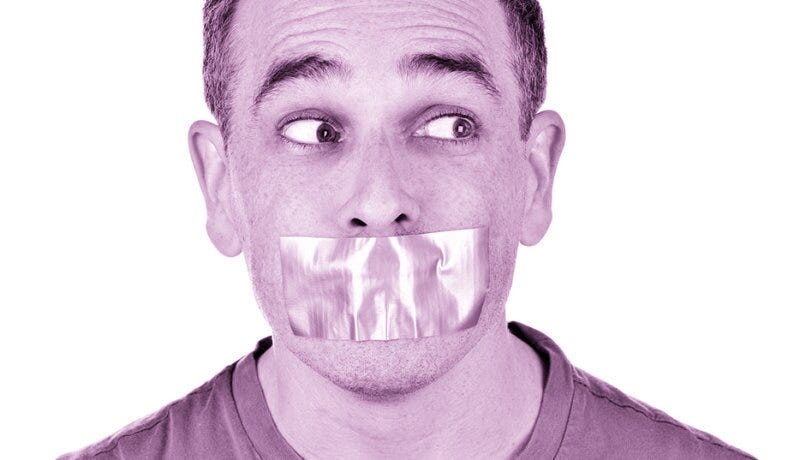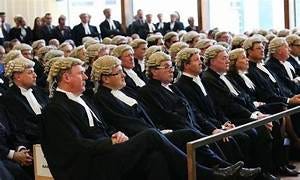Green Sky Thinking
Imagine a fictional country named “Straya” has an authoritarian government that prohibits the publication of misinformation. The law defines misinformation as any information that is not approved by government authorities. It also states that misinformation does not require proof of intent to constitute spreading false information.
Straya’s government publicly declared that the sky is green. John, a citizen of Straya, posted on social media that the sky is blue, contrary to the government’s assertion. He shares a photo of a blue sky from his backyard, along with a caption discussing the colour of the sky.
… an authoritarian government that prohibits the publication of misinformation.
The authorities in Straya, relying on the broad and unworkable definitions in the legislation and their discretionary powers, classify John’s post as misinformation simply because it contradicts the government’s approved narrative. The social media company is obliged to remove John’s post or risk severe fines. There is no need to prove that John intended to spread false information or that he acted maliciously. John might be mistaken, but his post is automatically categorised as misinformation because it contradicts the government narrative and the authorities decided his post is likely to cause harm to the Straya environment.
While this example is obviously hypothetical and intentionally ridiculous, the recently released draft of the Australian Government’s Communications Legislation Amendment (Combating Misinformation and Disinformation) (Bill) 2023 could make it a reality.
In this fictional tale, Straya’s authoritarian government wields an alarming power: the authority to define truth. The actual, non-fictional proposed legislation, reminiscent of George Orwell’s “1984”, similarly allows the government to label any information not approved by the authorities as misinformation. This broad definition could include opinions and viewpoints that challenge the government’s narrative, stifling legitimate debates and discussions. The absence of an intent requirement opens the door to suppressing dissent under the guise of combating misinformation.
The Victorian Bar published a submission on the Bill. In their own words: “The Bar is concerned that the Bill creates an unlevel playing field between governments and other speakers. Any view authorised by the government is, by statutory definition, not ‘misinformation’, however false or misleading it might be. Only information that is not authorised by government is capable of being ‘misinformation’ as defined. That double standard is illiberal, and disadvantages critics of government in comparison with a government’s supporters”.
The Ambiguity of Definitions
One of the Bill’s major flaws lies in its ambiguous definitions. The legislation requires a distinction between “information” and other online content. However, what exactly constitutes “information” remains unclear. This ambiguity creates a chilling effect on free speech, as individuals and platforms are forced to self-censor due to fear of legal repercussions. The lack of transparency surrounding what qualifies as misinformation gives the government a powerful tool to selectively target and suppress voices that oppose its narrative.
This ambiguity creates a chilling effect on free speech
The Broad Concept of Harm
The Bill’s broad definition of “harm” compounds the concerns over freedom of expression. It extends the definition to cover situations where content might only be “reasonably likely” to cause harm or “contribute to” harm. Such a wide interpretation opens the door for subjective judgments and potentially oppressive actions against content creators, further inhibiting open discussions that are essential for a healthy democracy.
Defending Democracy and Freedom
The example of Straya serves as a stark reminder of the potential consequences of legislation that undermines freedom of expression. In the real world, the fictional scenario shares alarming similarities with the concerns raised over the Australian Government’s proposed legislation. The Victorian Bar’s submission regarding the Bill underscores the danger of allowing governments to wield unchecked power over information, stifling opposition, and undermining the democratic principles of transparency, accountability, and open debate. The Bar concludes that as the Bill is currently drafted, it should not be enacted.
To quote directly from the Bar’s submission: “The exclusion in subclause (e) (content that is authorised by a government) highlights the Bill’s significant inroads into freedom of expression. The views of government — any government — are automatically protected from designation as ‘misinformation’, however inaccurate, controversial, or contestable they may be; yet the views of critics of government (whether the political opposition, NGOs or private individuals) are at risk of precisely such a designation. The prospect of politically charged accusations of ‘misinformation’ against opponents and critics readily presents itself. The later history of the Star Chamber was replete with exactly such politically motivated claims of misinformation.”
That double standard is illiberal
The Star Chamber operated from the 15th century until its abolition in 1641. The Court was used as a tool of government to bypass the rule of law and to exert control over political dissenters. The Bar’s explicit mention of the Star Chamber should serve as a warning as to how concerning this Bill is to the function of democracy in Australia.
The post Green Sky Thinking appeared first on Liberty Itch.




